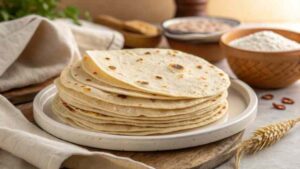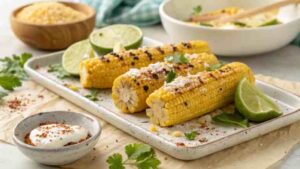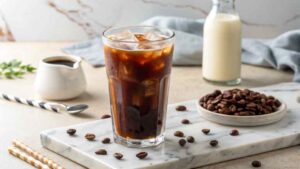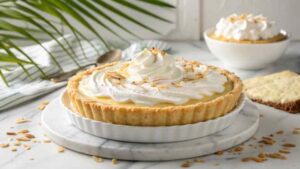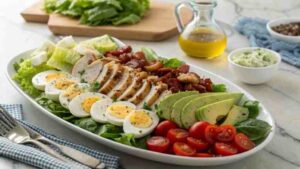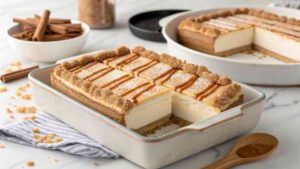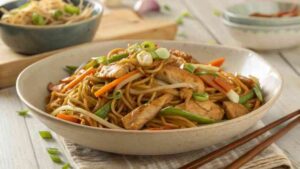Introduction
Hummingbird Nectar is a classic sugar-water solution, perfect for attracting hummingbirds to your garden or outdoor space. This simple, sweet nectar, featuring a precise ratio of sugar and water, provides a safe, energy-rich food source that mimics natural flower nectar. Presented in a clear glass hummingbird feeder, optionally accented with red flowers or a red feeder base, this Hummingbird Nectar recipe offers a vibrant, appealing aesthetic that draws hummingbirds to your yard. This recipe provides a traditional homemade version, adaptable for different feeder sizes, ideal for home gardeners seeking a delightful way to support local wildlife with a safe, effective nectar.
Ingredients
For the Hummingbird Nectar:
- 1 cup granulated white sugar
- 4 cups water (filtered or boiled and cooled)
For Serving:
- Optional: Red ribbon or red feeder base (to attract hummingbirds)
- Suggested Accompaniments: Place feeder near bright flowers (e.g., bee balm, salvia)
- Suggested Pairings: Enjoy while observing hummingbirds with morning coffee or tea
- Suggested Aesthetic: Serve in a clear glass hummingbird feeder
- Suggested Equipment: Medium saucepan, stirring spoon, measuring cups, hummingbird feeder, funnel
Step-by-Step Process
- Boil Water: In a medium saucepan, bring 4 cups of water to a boil to ensure purity. Alternatively, use filtered water to skip boiling.
- Dissolve Sugar: Remove water from heat (if boiled) and stir in 1 cup of granulated white sugar until fully dissolved. The ratio should be 1:4 (sugar to water).
- Taste and Adjust: Optionally, taste a tiny drop of the cooled mixture to ensure it’s sweet but not overly sugary (should taste lightly sweet, mimicking natural nectar). Adjust with a small amount of sugar if needed, maintaining the 1:4 ratio.
- Cool completely: Allow the nectar to cool to room temperature to avoid harming hummingbirds or damaging the feeder.
- Fill Feeder: Pour the cooled nectar into a clean hummingbird feeder using a funnel. Secure the feeder lid tightly.
- Serve: Hang the feeder in a shaded area near bright flowers (e.g., bee balm, salvia) or tie a red ribbon nearby to attract hummingbirds. Enjoy with morning coffee or tea while observing the birds.
Tips for Better Hummingbird Nectar
- Use only granulated white sugar; avoid honey, brown sugar, or artificial sweeteners, which can harm hummingbirds.
- Taste the cooled mixture sparingly (optional) to confirm light sweetness; the 1:4 ratio is ideal for mimicking natural nectar.
- Boil water to remove impurities, especially if using tap water, or use filtered water for convenience.
- Clean the feeder thoroughly with hot water and a mild vinegar solution before refilling to prevent mold or bacteria.
- Present in a clear glass feeder to monitor nectar levels and ensure cleanliness, with red accents to attract hummingbirds.
- Change nectar every 3–5 days (or every 1–2 days in hot weather) to keep it fresh and safe.
- Hang the feeder in a shaded area to slow fermentation and avoid direct sunlight.
- Enhance aesthetic: Place near red or bright flowers to naturally attract hummingbirds.
Variations and Customization
- Smaller Batch: Halve the recipe (1/2 cup sugar, 2 cups water) for smaller feeders.
- Larger Batch: Double the recipe (2 cups sugar, 8 cups water) for multiple feeders, maintaining the 1:4 ratio.
- No-Boil Option: Use filtered or distilled water to skip boiling, ensuring the water is free of impurities.
- Seasonal Adjustment: In hotter climates, use a slightly weaker ratio (1:5 sugar to water) to reduce fermentation risk.
- Note: Do not add food coloring, as it’s unnecessary and potentially harmful to hummingbirds.
Storage and Serving Tips
- Store leftover nectar in an airtight container in the fridge for up to 7 days; shake or stir before using.
- Do not freeze, as sugar water can separate or crystallize, affecting quality.
- Serve fresh nectar in a clean feeder to ensure hummingbird safety and attraction.
- Use as the primary food source for hummingbird feeders, placed near nectar-rich flowers.
- Pair with morning coffee or tea for a relaxing bird-watching experience.
- Present in a clear glass feeder with red accents for a vibrant, wildlife-friendly charm.
Nutritional Information
Based on 4 servings (1 cup each, for hummingbirds):
- Calories: 193 kcal (for hummingbirds; not intended for human consumption)
- Total Fat: 0g
- Cholesterol: 0mg
- Sodium: 0mg
- Total Carbohydrates: 50g
- Dietary Fiber: 0g
- Sugars: 50g
- Protein: 0g
Note: Nutritional values are for reference only, as this recipe is designed for hummingbirds, not humans. The 1:4 sugar-to-water ratio provides safe, energy-rich nectar.
Conclusion
This Hummingbird Nectar recipe delivers a simple, sweet solution perfect for attracting hummingbirds to your garden, transforming basic ingredients into a wildlife-friendly favorite. Its easy preparation and vibrant feeder presentation make it a go-to. The light sweetness delights hummingbirds with every sip. It’s sure to be a cherished recipe, loved for its ability to bring nature closer.
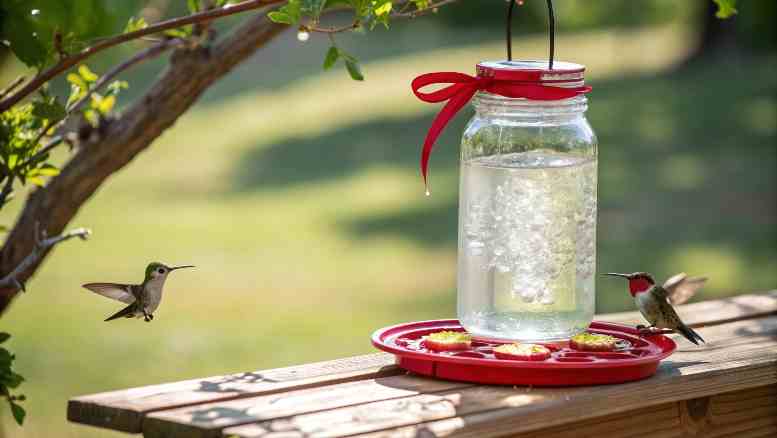
Hummingbird Nectar Recipe: Simple and Sweet
Ingredients
- 1 cup granulated white sugar
- 4 cups water filtered or boiled and cooled
- Optional: Red ribbon or feeder base
- Suggested Pairings: Coffee tea
Instructions
- Boil water or use filtered water.
- Dissolve sugar in water (1:4 ratio).
- Taste and adjust mixture (optional).
- Cool to room temperature.
- Pour into a clean hummingbird feeder.
- Hang in the shade near flowers; enjoy with coffee or tea.
Notes
- Use only white sugar; avoid honey or dyes.
- Store in the fridge for 7 days; don’t freeze.
- Change nectar every 3–5 days.
- Place near bright flowers.

